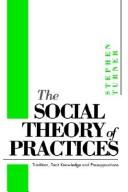| Listing 1 - 10 of 73 | << page >> |
Sort by
|
Book
ISBN: 9781137377166 9781137377180 9781137377173 113737716X 1306071038 134947794X 1137377178 1137377186 Year: 2014 Publisher: Basingstoke Palgrave Macmillan
Abstract | Keywords | Export | Availability | Bookmark
 Loading...
Loading...Choose an application
- Reference Manager
- EndNote
- RefWorks (Direct export to RefWorks)
Sociology --- United States --- History --- History. --- Sociology - United States - History --- United States of America
Book
ISBN: 0444413774 9780444413772 Year: 1976 Publisher: Amsterdam
Abstract | Keywords | Export | Availability | Bookmark
 Loading...
Loading...Choose an application
- Reference Manager
- EndNote
- RefWorks (Direct export to RefWorks)
Descriptive organic chemistry --- Organic compounds --- Synthesis --- 547.057 --- -#WSCH:LOSH --- Compounds, Organic --- Organic chemicals --- Carbon compounds --- Organic chemistry--?.057 --- 547.057 Organic chemistry--?.057 --- #WSCH:LOSH --- Chemistry, Organic --- Chemistry, Synthetic organic --- Organic synthesis (Chemistry) --- Synthetic organic chemistry --- Synthesis. --- Organic compounds. --- Organic compounds - Synthesis
Book
ISBN: 9781847879332 Year: 2010 Publisher: Los Angeles, Calif. SAGE
Abstract | Keywords | Export | Availability | Bookmark
 Loading...
Loading...Choose an application
- Reference Manager
- EndNote
- RefWorks (Direct export to RefWorks)

ISBN: 0745605044 9780745605043 Year: 1994 Publisher: Cambridge Polity press
Abstract | Keywords | Export | Availability | Bookmark
 Loading...
Loading...Choose an application
- Reference Manager
- EndNote
- RefWorks (Direct export to RefWorks)
Book
ISBN: 9780745642567 9780745642550 0745642551 Year: 2010 Publisher: Cambridge Polity
Abstract | Keywords | Export | Availability | Bookmark
 Loading...
Loading...Choose an application
- Reference Manager
- EndNote
- RefWorks (Direct export to RefWorks)
Normativity is what gives reasons their force, makes words meaningful, and makes rules and laws binding. It is present whenever we use such terms as ‘correct,' ‘ought,' ‘must,' and the language of obligation, responsibility, and logical compulsion. Yet normativists, the philosophers committed to this idea, admit that the idea of a non-causal normative realm and a body of normative objects is spooky. Explaining the Normative is the first systematic, historically grounded critique of normativism. It identifies the standard normativist pattern of argument, and shows how this pattern depends on circularities, assumptions about the unique correctness of preferred descriptions, problematic transcendental arguments, and regress arguments that end in mysteries. The book considers in detail a paradigm case: legal normativity as constructed by Hans Kelsen. This case exemplifies the problems with normativist arguments. But it also shows how normativism was constructed as an alternative to ordinary social science explanation. The normativist argument is that social science explanations themselves are forced to rely on normative conceptsÑminimally, on normative rationality and on a normative view of ‘concepts' themselves. Empathic understanding of the reasoning and meanings of others, however, can solve the regress problems about meaning and rationality that are central to the appeal of normativism. This account has no need for a parallel normative world, and has a surprising and revealing lineage in the history of philosophy, as well as a basis in neuroscience.

ISBN: 9027720673 9048184177 9401734615 9789027720672 Year: 1986 Volume: 92 Publisher: Dordrecht
Abstract | Keywords | Export | Availability | Bookmark
 Loading...
Loading...Choose an application
- Reference Manager
- EndNote
- RefWorks (Direct export to RefWorks)
Sociological theory building --- Social sciences --- Methodology --- History --- 303 --- -Behavioral sciences --- Human sciences --- Sciences, Social --- Social science --- Social studies --- Civilization --- Methoden bij sociaalwetenschappelijk onderzoek --- -History --- History. --- -Methoden bij sociaalwetenschappelijk onderzoek --- 303 Methoden bij sociaalwetenschappelijk onderzoek --- -303 Methoden bij sociaalwetenschappelijk onderzoek --- Behavioral sciences --- Methodology&delete& --- Sciences sociales. Méthodologie. Histoire. --- Sociale wetenschappen. Methodologie. Geschiedenis. --- Social sciences - Methodology - History

ISBN: 0415040868 9780415040860 Year: 1992 Publisher: London Routledge
Abstract | Keywords | Export | Availability | Bookmark
 Loading...
Loading...Choose an application
- Reference Manager
- EndNote
- RefWorks (Direct export to RefWorks)
Sociology --- Fascism --- Sociologists --- History --- #SBIB:022.TOND --- #SBIB:316.22H10 --- Sociologie als product van de samenleving: structureel culturele benadering van de sociologische strekkingen --- United States --- 20th century --- Europe --- Sociology - United States - History - 20th century. --- Sociology - Europe - History - 20th century. --- Fascism - History. --- Sociologists - United States - History - 20th century. --- Sociologists - Europe - History - 20th century. --- Sociology - United States - History - 20th century --- Sociology - Europe - History - 20th century --- Fascism - History --- Sociologists - United States - History - 20th century --- Sociologists - Europe - History - 20th century

ISBN: 0631191933 0631191925 Year: 1996 Publisher: Cambridge, Mass. : Blackwell,
Abstract | Keywords | Export | Availability | Bookmark
 Loading...
Loading...Choose an application
- Reference Manager
- EndNote
- RefWorks (Direct export to RefWorks)
Sociology --- Sociologie --- History --- Philosophy --- Histoire --- Philosophie --- #SBIB:AANKOOP --- #SBIB:316.21H00 --- Theoretische sociologie: inleidingen op de huidige toestand
Book
ISBN: 0521561493 052156753X Year: 2000 Publisher: New York : Cambridge University Press,
Abstract | Keywords | Export | Availability | Bookmark
 Loading...
Loading...Choose an application
- Reference Manager
- EndNote
- RefWorks (Direct export to RefWorks)
Sociology --- Sociologie --- History. --- Histoire --- Weber, Max, --- #SBIB:011.AANKOOP --- #SBIB:316.20H42 --- De sociologie van Max Weber: secundaire bronnen --- History --- ウェーバー, マックス --- Weber, Max --- Ma-kʻo-ssu Wei-po, --- Makesi Weibo, --- Pebŏ, --- Pebŏ, Maksŭ, --- Vēbā, Makkusu, --- Veber, Maks, --- Vemper, Max, --- Webŏ, Maksŭ, --- Wei-po, Ma-kʻo-ssu, --- Weibo, --- Weibo, Makesi, --- ובר, מאקס, --- ובר, מאכס --- ובר, מקס --- 韦伯,
Book
ISBN: 9789041128157 9041128158 Year: 2009 Volume: 1 Publisher: Austin : Frederick, MD : Wolters Kluwer Law & Business ; Sold and distributed in North, Central, and South America by Aspen Publishers,
Abstract | Keywords | Export | Availability | Bookmark
 Loading...
Loading...Choose an application
- Reference Manager
- EndNote
- RefWorks (Direct export to RefWorks)
| Listing 1 - 10 of 73 | << page >> |
Sort by
|

 Search
Search Feedback
Feedback About UniCat
About UniCat  Help
Help News
News